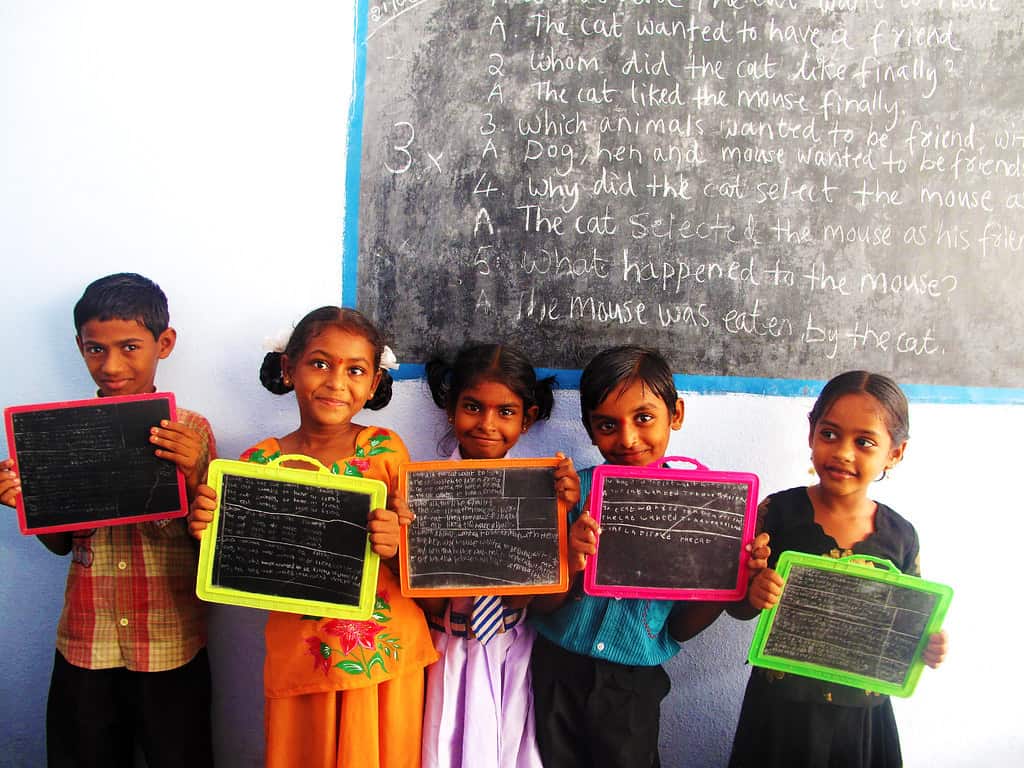“The future of our country depends on the leaders and the government,” said Krishna Pande, a student of KC college. The youth of our country play an important role in shaping how our society will live to function in the future, and so, inviting their opinions on urban policies and civic governance is key.
The current state of affairs in Mumbai highlights the need for participatory governance. Often, decisions on matters of key importance – whether environment or infrastructure – are taken without due consultation from citizens who are inevitably impacted by them. Like the introduction of Advanced Locality Managements in Mumbai, that leveraged inter-society networks to organise waste management, citizen-government relationships have always empowered the urban population. Similarly, citizen participation, especially from the youth, can help devise policies that are relevant, efficient and beneficial in the future as well.
To nurture early education in civic matters, Citizen Matters on March 11th collaborated with civic organisations Reap Benefit and Kuviraa to launch the ‘If I Were The Mayor of Mumbai’ contest. Ahead of the Brihanmumbai Municipal Corporation (BMC) elections in 2022, it was discussed that young citizens could facilitate participatory governance in a city infamous for low voter turnout.
Applications from students between 14-19 poured in, with many voices sharing what they would do if they were the Mayor of Mumbai. Entries from different linguistic backgrounds – English, Hindi and Marathi – were encouraged, in the form of essays and videos. Students discussed changes to infrastructure and environment, among other issues, and offered detailed strategies for mitigation and implementation. The responses to the contest confirmed that their awareness of their city is strong and cannot be overlooked.
Read more: Why government schemes aren’t reaching those who need it the most in Mumbai
A desire for a new education system

A common pattern among entries was the desire for a change in the education system, to make learning more interesting, inclusive and accessible to all. In a post-pandemic society, education has been at the forefront of many discourses, as students were one of the most affected groups. Young children from different socio-economic backgrounds had to, almost overnight, learn online. It is not unknown that the COVID pandemic shifted systems and how we access information, and for schools particularly, it was a bigger challenge – to engage children constantly and ensure that every child gets an education no matter where they are. For families from poorer backgrounds – many with just one smartphone at home – the digital world was inaccessible. For children living with larger families, home environments might have been busy and distracting, and several parents had to become more involved in their child’s education, often taking on the role of teacher.
Disha Singh, a student of Dhai Akshar School, demanded more accountability in governance and transparency in budget allocation. “Budgets are passed for building new toilets, but so often, there will be 20 public toilets in one area and only one in another,” she said. Others pointed out how developmental projects are taking place for merely a performance of development, instead of addressing existing issues in infrastructure and redeveloping it to build a more inclusive city. Empathy towards vulnerable groups – slum areas, informal workers – was a recurring point of contention, and many students found this lacking in contemporary governance.
Entries were judged within the team on the basis of four categories – quality of effort, relevance, originality and foresight. It was decided to judge entries solely on ideas, rather than how they were presented. Nine entries were selected as ‘best entries’ (in no particular order) –
| Name | School/Organisation | If they were the Mayor |
| Krishna Pandey (16) | KC College | Krishna wants to work on living conditions of the urban poor and work on gender equality |
| Tvesha Somani (16) | JBCN International School | Aims to focus on addressing Mumbai’s poor Air Quality |
| Tanisha Agrawal (15) | Jamnabai Narsee International School & Antarang Foundation Youth Advisory Board | Would address noise pollution in the city |
| Angelina Pinheiro (16) | JBCN International School | Hopes to make suitable garbage disposal solutions accessible to encourage recycling and conservation of valuable resources in Mumbai |
| Saira Manihar (17) | Gurukul English High School and Jr College | Would improve the education system in Mumbai and teach students about character-building and behaviour skills to make Mumbai safer for women |
| Pooja Jha (16) | Dhai Akshar Education Trust | Wants good lawyers to be made more accessible in Mumbai, and better (teaching) techniques to be used in schools |
| Disha Singh (19) | Dhai Akshar Education Trust | Would ensure more accountability in governance and the school system, and also ensure distribution of essential facilities in all areas of the city |
| Poonam (18) | Happy Feet Home Foundation | Wants to improve the cleanliness levels of government facilities such as schools and hospitals |
| Satvarsh Satish Kumbhar (15) | Udyachal High School | Wants to take measures to reduce traffic and potholes, reduce urban flooding and wastage of water, and open health care centres with increased resources |
As we close the contest, we hope that more young citizens will come forward as active participants in Mumbai, and take initiative to be involved in issues of local governance, as well as hold our representatives accountable.